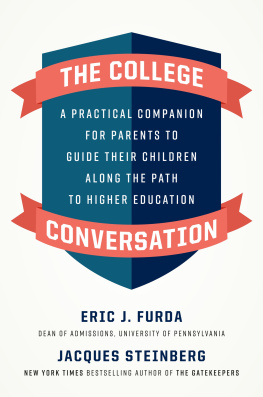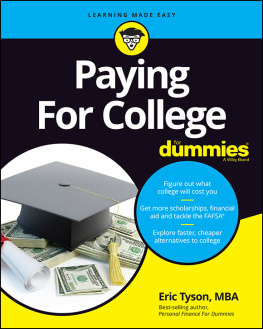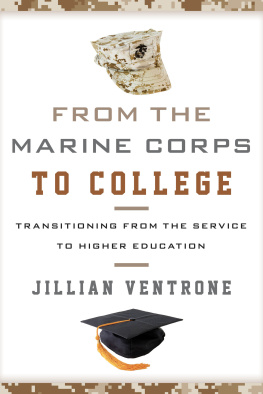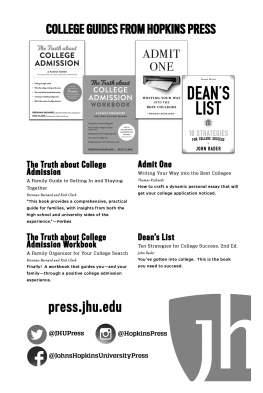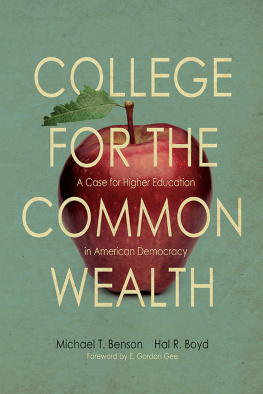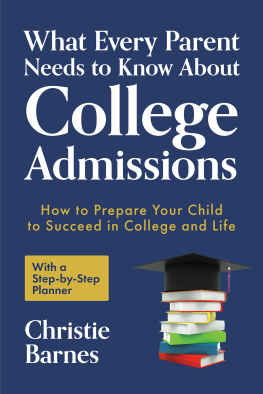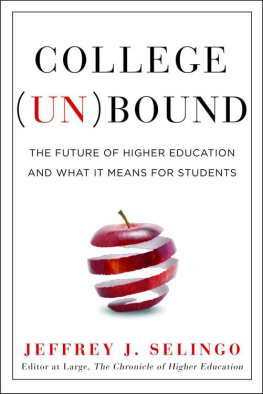Eric J. Furda - The college conversation: A Practical Companion for Parents to Guide Their Children Along the Path to Higher Education
Here you can read online Eric J. Furda - The college conversation: A Practical Companion for Parents to Guide Their Children Along the Path to Higher Education full text of the book (entire story) in english for free. Download pdf and epub, get meaning, cover and reviews about this ebook. year: 2020, publisher: Penguin Publishing Group, genre: Home and family. Description of the work, (preface) as well as reviews are available. Best literature library LitArk.com created for fans of good reading and offers a wide selection of genres:
Romance novel
Science fiction
Adventure
Detective
Science
History
Home and family
Prose
Art
Politics
Computer
Non-fiction
Religion
Business
Children
Humor
Choose a favorite category and find really read worthwhile books. Enjoy immersion in the world of imagination, feel the emotions of the characters or learn something new for yourself, make an fascinating discovery.
- Book:The college conversation: A Practical Companion for Parents to Guide Their Children Along the Path to Higher Education
- Author:
- Publisher:Penguin Publishing Group
- Genre:
- Year:2020
- Rating:5 / 5
- Favourites:Add to favourites
- Your mark:
- 100
- 1
- 2
- 3
- 4
- 5
The college conversation: A Practical Companion for Parents to Guide Their Children Along the Path to Higher Education: summary, description and annotation
We offer to read an annotation, description, summary or preface (depends on what the author of the book "The college conversation: A Practical Companion for Parents to Guide Their Children Along the Path to Higher Education" wrote himself). If you haven't found the necessary information about the book — write in the comments, we will try to find it.
Eric J. Furda: author's other books
Who wrote The college conversation: A Practical Companion for Parents to Guide Their Children Along the Path to Higher Education? Find out the surname, the name of the author of the book and a list of all author's works by series.
The college conversation: A Practical Companion for Parents to Guide Their Children Along the Path to Higher Education — read online for free the complete book (whole text) full work
Below is the text of the book, divided by pages. System saving the place of the last page read, allows you to conveniently read the book "The college conversation: A Practical Companion for Parents to Guide Their Children Along the Path to Higher Education" online for free, without having to search again every time where you left off. Put a bookmark, and you can go to the page where you finished reading at any time.
Font size:
Interval:
Bookmark:
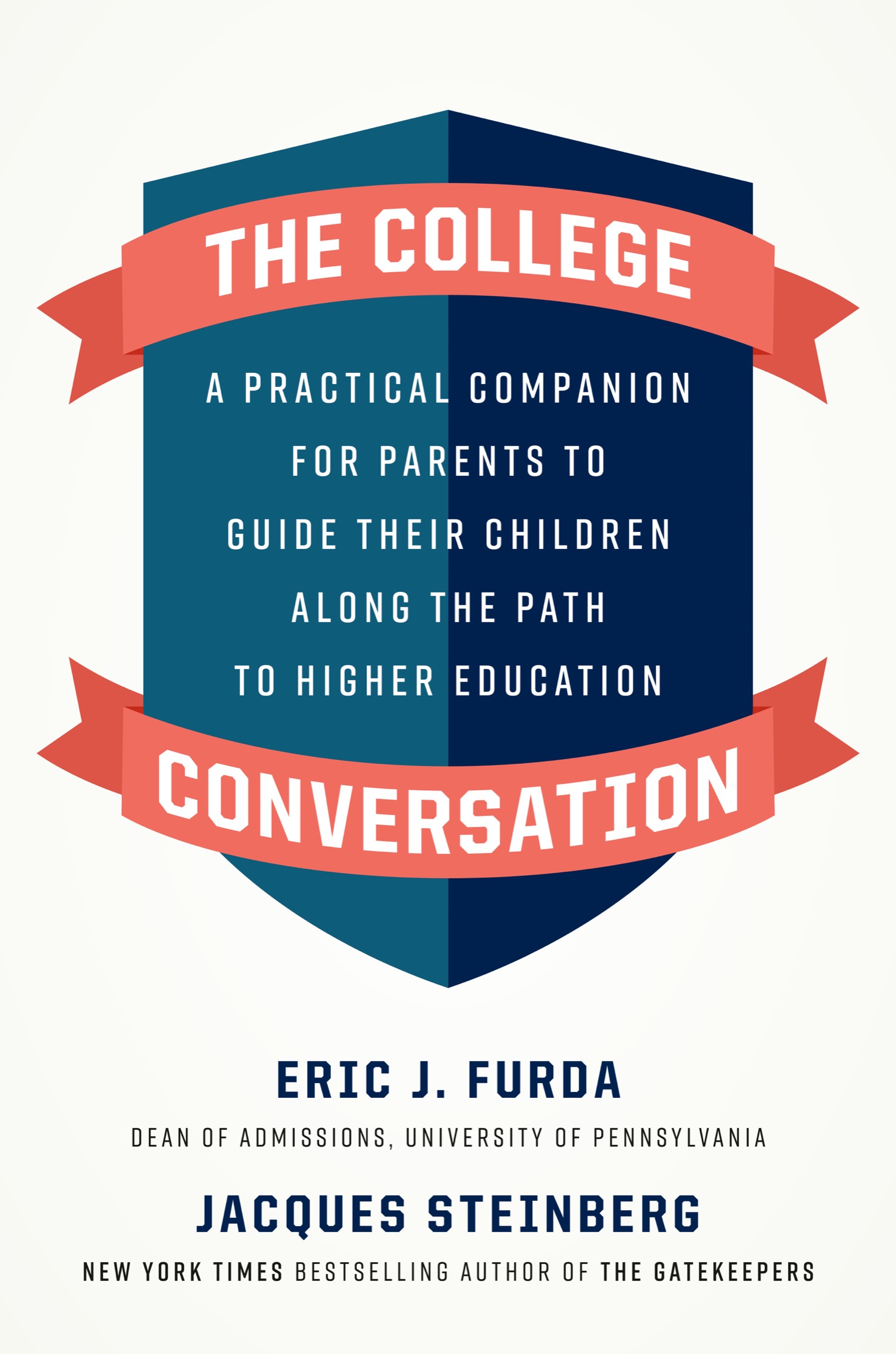
You Are an Ironman
The Gatekeepers
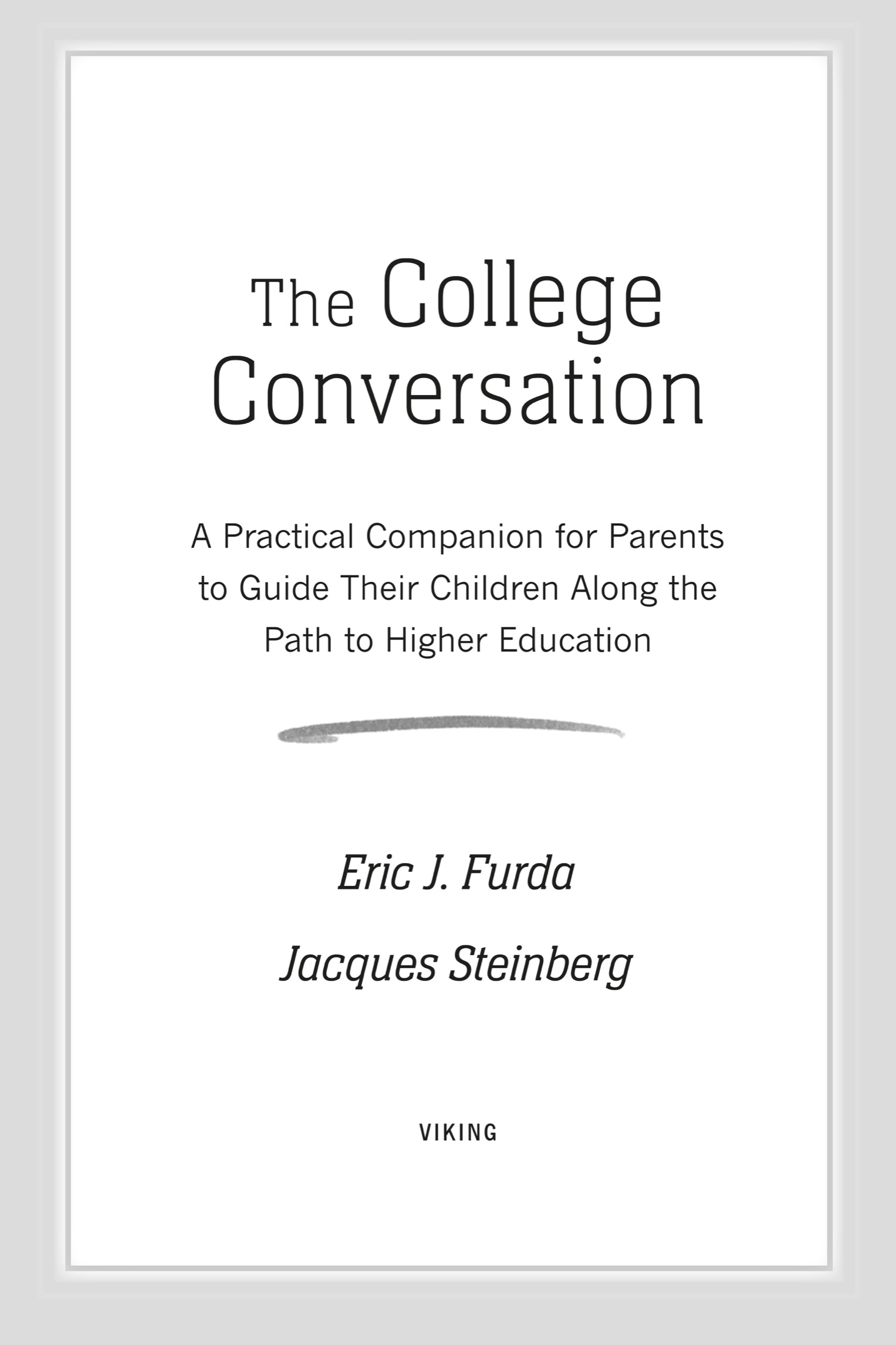
VIKING
An imprint of Penguin Random House LLC
penguinrandomhouse.com
Copyright 2020 by Eric J. Furda and Jacques Steinberg
Penguin supports copyright. Copyright fuels creativity, encourages diverse voices, promotes free speech, and creates a vibrant culture. Thank you for buying an authorized edition of this book and for complying with copyright laws by not reproducing, scanning, or distributing any part of it in any form without permission. You are supporting writers and allowing Penguin to continue to publish books for every reader.
LIBRARY OF CONGRESS CATALOGING-IN- PUBLICATION DATA
Names: Furda, Eric, author. | Steinberg, Jacques, author.
Title: The college conversation: a practical companion for parents to guide their children along the path to higher education / Eric J. Furda, Jacques Steinberg.
Description: New York: Viking, [2020] | Includes bibliographical references and index.
Identifiers: LCCN 2020015460 (print) | LCCN 2020015461 (ebook) | ISBN 9781984878342 (hardcover) | ISBN 9781984878359 (ebook)
Subjects: LCSH: College applications.
Classification: LCC LB2351.5 .F87 2020 (print) | LCC LB2351.5 (ebook) | DDC 378.1/616dc23
LC record available at https://lccn.loc.gov/2020015460
LC ebook record available at https://lccn.loc.gov/2020015461
Cover design: Jason Ramirez
pid_prh_5.6.0_c0_r0
In memory of my mother, Virginia, a voracious learner who could not afford the opportunity to attend college, and for my father, Robert, who sacrificed so I had the chance to do so.
Eric
In memory of my father, Barry, who always set the bar high, and with gratitude to him and to my mother, Edythe, for their support in making my own higher-education dreams come true.
Jacques
Imagine what its like to be a teenager applying to college at the outset of the third decade of the twenty-first century.
Arrayed before them is a dizzying menu of more than two thousand four-year colleges and universities in the United States alone, several dozen of which admit only a small fraction of those who apply. A handful of the most exclusive and best known go a step further and turn away nearly all would-be students. Meanwhile, the majority of the nations bachelors-degree-granting schools, many of them fine institutions of higher learning flying well below the radar, offer admission to most applicants. Some of those colleges even struggle to fill their first-year classes each fall, to say nothing of generating sufficient revenue to keep the lights on or perhaps face the prospect of shutting their doors.
How can high school juniors or seniors possibly surveylet alone take the measure ofthe offerings across this vast, confusing landscape and figure out where they might fit in?
As they seek to differentiate one campus from the next (and the next), the colleges bombard them with marketing materials, delivered via U.S. mail, email, text message, social media, and sometimes live phone calls from students or even prerecorded robocalls. The schools use contact lists purchased from the College Board, the purveyor of the SAT, as well as from the American College Testing Program (sponsor of the ACT test), which are then customized by students zip codes, test scores, academic and extracurricular interests, and grades (all reported by the students when they signed up for the test). Day after day throughout their junior year and senior fall, the utility bills in their familys mailbox are crowded out by lush full-color brochures illustrated with panoramic campus photos and punctuated with stats that trumpet measures of student success (95 percent of our graduates have a job or are enrolled in graduate school within six months of graduation) or satisfaction (Ranked fifth by U.S. News & World Report in the category of A-Plus Schools for B Students). By early 2020, there were signs of a backlash against these practices, including the filing of a lawsuit by the parent of a Chicago public school student, challenging the sharing of minors personal data, for profit, with the colleges. But there was no immediate indication of the potential impact, if any, on colleges recruitment efforts.
Meanwhile, prospective enrollees email inboxes clog each day at dawn with pop quizzes from their suitors. (Spoiler alert: the correct answer to each question is always the name of the college reaching out to them.) There are also Letterman-inspired top five lists of tips for applying to college; come-ons, including testimonials from famous alumni and odes to creature comforts like Tempur-Pedic mattresses in every dorm room; and so-called fast apps.
The latter are the college admissions worlds version of a preapproved credit card form: a one-page application that has been prepopulated with their name, address, and other personal information that they supplied to the College Board and that was also made available to the colleges for purchase. Opening an envelope emblazoned with designations like First Priority Scholar, candidates are told that they appear to be such a strong prospect for admission that the standard application fee is being waived, and that in lieu of composing an original essay they need only submit a graded paper from high school. Indeed, all they really need to do is sign on the dotted line. More than a few students who felt buoyed by their first priority designation have been surprised to find themselves later summarily denied by these very institutionssome of them well-known brand names.
Meanwhile, throughout the fall of senior year, representatives from the admissions offices that will consider all these college applications typically spend several months not only crisscrossing the United States but circling the globe in search of international students who might be persuaded to apply to their institutions. Among the objectives of these recruiting trips is to identify candidates who would add to the campus community not only by virtue of their academic achievements, life experience, or, in some instances, their ability to pay full freight, but who might also make the admissions process that much more competitive.
Then the tables turn, and it is time for the students applying to make the case for acceptance.
In contrast to the applications their parents may have filled out decades earlierone at a time, by typewriter or sometimes by handthey will likely find themselves working through the Common Application, usually referred to as the Common App, which is accepted at nearly nine hundred institutions. This platform enables them to save time and effort by typing their personal information on the Common App website just once and to respond to a series of generic essay prompts intended to yield personal statements of several hundred words. These will then be shared with each of the institutions to which they apply that accept the Common Application.
Many of the schools that accept the Common Application also require completion of a series of additional essays, known as a supplement, that are specific to their institution and often intended to gauge the extent of the homework applicants have done about that school and the intensity of their ardor for attending it.
While the Common Application may be the most widely used method of applying to colleges and universities in the United States, it is hardly the only one. By the fall of 2017, more than 150 institutions had committed to accept the Coalition for College, which they designed collectively with the particular intention of helping low-income and other students historically underrepresented on the nations college and university campuses. Other application forms that are shared by multiple institutions include the Universal College Application (accepted in the fall of 2017 by nine institutions) and the Cappex Application (more than 125 schools).
Font size:
Interval:
Bookmark:
Similar books «The college conversation: A Practical Companion for Parents to Guide Their Children Along the Path to Higher Education»
Look at similar books to The college conversation: A Practical Companion for Parents to Guide Their Children Along the Path to Higher Education. We have selected literature similar in name and meaning in the hope of providing readers with more options to find new, interesting, not yet read works.
Discussion, reviews of the book The college conversation: A Practical Companion for Parents to Guide Their Children Along the Path to Higher Education and just readers' own opinions. Leave your comments, write what you think about the work, its meaning or the main characters. Specify what exactly you liked and what you didn't like, and why you think so.

